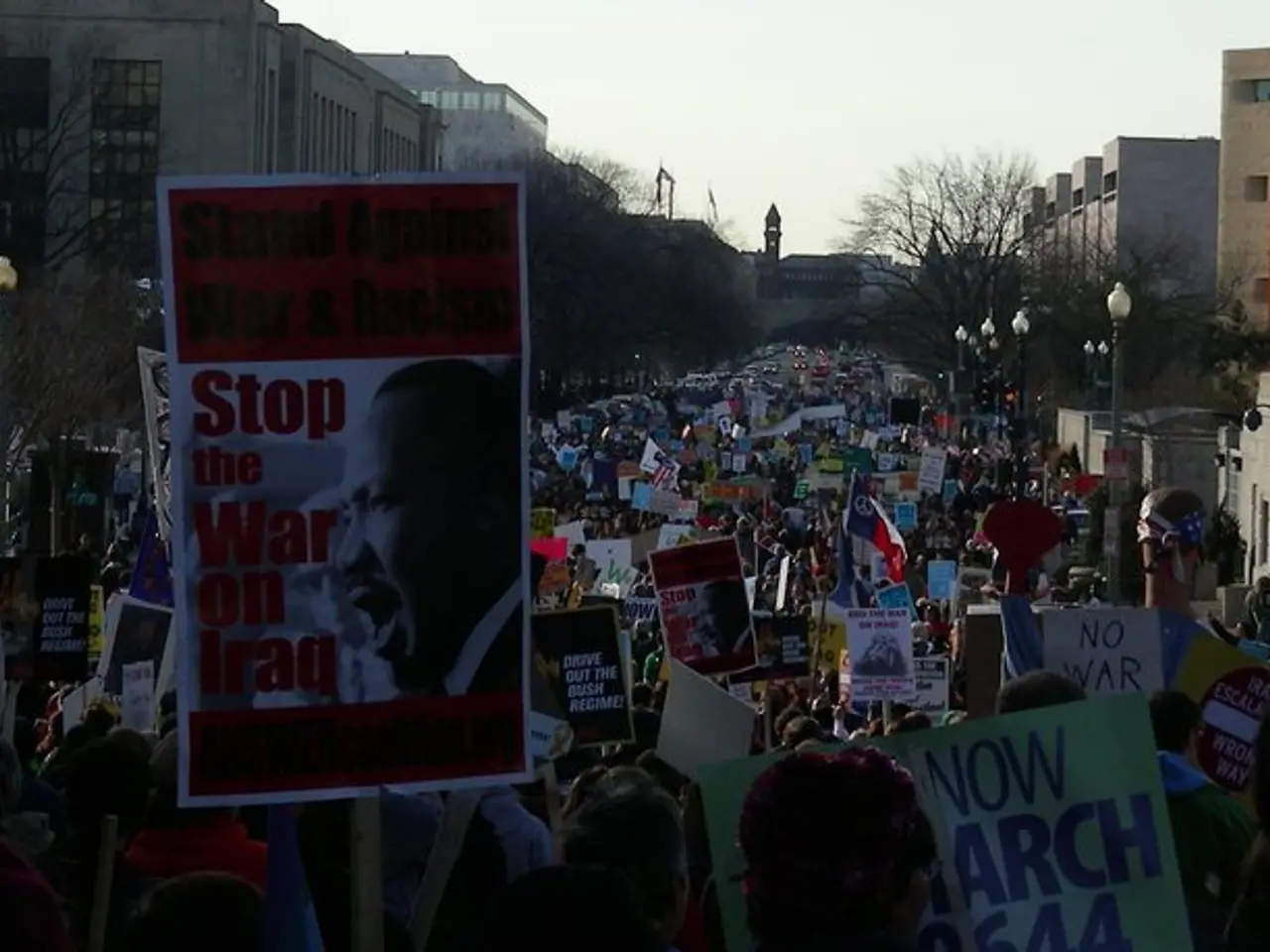Israel's Prime Minister Netanyahu intends to take over the entire Gaza Strip, as suggested in a recent report - Netanyahu allegedly intends to seize control of the entire Gaza Strip.
The prospect of a full Israeli occupation of the Gaza Strip has raised significant concerns, both humanitarian and geopolitical.
Potential Implications and Concerns
Humanitarian Impact
A full occupation could lead to intense urban warfare, resulting in high civilian casualties and widespread destruction. Gaza’s densely populated environment exacerbates these risks. The occupation could also worsen shortages of food, water, medical supplies, and electricity, leading to a severe humanitarian crisis. Infrastructure damage could cripple essential services.
Political and Security Risks
Occupying Gaza might provoke prolonged insurgency and increased attacks from militant groups, potentially destabilizing the region further. There is a risk that occupation could deepen resentment and radicalize more citizens, fueling long-term conflict. The move could affect intra-Palestinian politics, possibly undermining the Palestinian Authority and complicating any future negotiations.
International Law and Human Rights
Concerns about potential violations of international humanitarian law, including collective punishment and disproportionate use of force, have been raised. The occupation would raise questions regarding the treatment of civilians under occupation and obligations under the Fourth Geneva Convention.
Regional and Global Repercussions
A full occupation might strain Israel’s relations with Arab countries and complicate existing peace agreements or normalization efforts. It could provoke wider regional instability and draw international condemnation.
International Response, Especially from the United States
The U.S. typically supports Israel’s right to defend itself but expresses concerns about full occupation due to the humanitarian impact and potential for further destabilization. The American government often calls for restraint to minimize civilian harm, efforts to restore calm, and avoid actions that hinder future peace negotiations. It also supports humanitarian aid to Gaza to alleviate the suffering of civilians.
Many countries and international bodies urge de-escalation, adherence to international law, and renewed diplomatic efforts. The UN and humanitarian organizations emphasize the urgent need to protect civilians and maintain humanitarian access.
In summary, a full Israeli occupation of Gaza is widely viewed as highly risky, with deep humanitarian consequences and possible long-term destabilization. International actors, including the United States, generally advocate careful consideration of these risks, emphasizing humanitarian concerns and diplomatic solutions.
Recent reports suggest that US President Donald Trump is now aiming for a comprehensive deal to end the war and return all remaining hostages at once, rather than initially negotiating only a ceasefire and the phased release of hostages. However, high-ranking officials in Netanyahu's circle have stated, "The die is cast - we intend to fully occupy the Gaza Strip."
The European Union and its Member States are committed to the following: expressing grave concerns over the potential full Israeli occupation of the Gaza Strip, given the war-and-conflicts, political, and general-news ramifications such an action might entail. They highlight the possible humanitarian impact, political and security risks, violations of international humanitarian law, regional and global repercussions, and the need for diplomatic solutions to avoid this highly risky move with deep humanitarian consequences and possible long-term destabilization.








